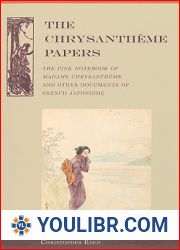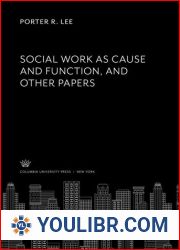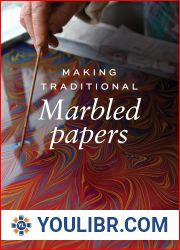
BOOKS - The Chrysantheme Papers: The Pink Notebook of Madame Chrysantheme and other D...

The Chrysantheme Papers: The Pink Notebook of Madame Chrysantheme and other Documents of French Japonisme
Author: Christopher Reed
Year: February 28, 2010
Format: PDF
File size: PDF 44 MB
Language: English
Year: February 28, 2010
Format: PDF
File size: PDF 44 MB
Language: English
Pierre Loti's novel Madame Chrysantheme (1888) enjoyed great popularity during the author's lifetime, served as a source of Puccini's opera Madama Butterfly, and remains in print to this day as a classic in Western literature. Loti's story, cast in the form of his fictionalized diary, describes the affair between a French naval officer and Chrysantheme, a temporary and "bride and " purchased in Nagasaki. More broadly, Loti's novel helped define the terms in which Occidentals perceived Japan as delicate, feminine, and, to use one of Loti's favorite words, and "preposterous and "-in short, ripe for exploitation.The Pink Notebook of Madame Chrysantheme (1893) sought, according to a newspaper reviewer at the time, and "to avenge Japan for the adjectives that Pierre Loti has inflicted on it. and " Written by Felix Regamey, a talented illustrator with firsthand knowledge of Japan, The Pink Notebook retells Loti's story but this time as the diary of Chrysantheme. The book, presented here in English for the first time and together with the original French text and illustrations by Regamey and others, is certainly surprising in its late nineteenth-century context. Its retelling of a classic tale from the position of a character marginalized by her sex and race provocatively anticipates certain aspects of postmodern literature. Translator Christopher Reed's rich and satisfying introduction compares Loti and Regamey in relation to attitudes toward Japan held by notable Japonistes Vincent van Gogh, Lafcadio Hearn, Edmond de Goncourt, and Philippe Burty. Reed provides further intellectual context by including new translations of excerpts from Loti's novel as well as a portion of the travel journal of Regamey's travel companion, the renowned collector Emile Guimet. Reed's emphasis on competing Western ideas about Japan challenges conventional scholarly generalizations concerning Japanism in this era.This elegant translation of The Pink Notebook and Japoniste documents will delight both general and specialized readers, particularly those interested in the ambiguities in the dynamics of nationalism, gender, identification, and exploitation that, since the nineteenth century, have characterized the West's relationship to Japan.
















































